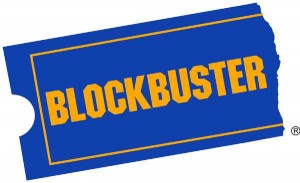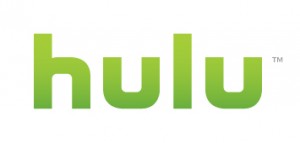 More than 35,000 Netflix subscribers flooded the company’s blog and Facebook page with negative comments less than 24 hours after the company announced major pricing changes for its DVD-by-mail and streaming services.
More than 35,000 Netflix subscribers flooded the company’s blog and Facebook page with negative comments less than 24 hours after the company announced major pricing changes for its DVD-by-mail and streaming services.
News that Netflix would unbundle discounts for customers who enjoy online streaming and still need to rent an occasional DVD-by-mail went over like a lead balloon for the overwhelming majority, who hit the 5,000 comment limit on Netflix’s own blog by 5:30pm Tuesday, and continue to pound the company’s Facebook page by the tens of thousands this morning.
One of the most “liked” comments came from longtime Netflix customer Scotty Fagaly:
“The only way that this is terrific for the customer is if you plan to offer your entire collection available for streaming,” Fagaly lamented. “Otherwise, this is just yet another way to choke more change out of your customers.”
Only about 20 percent of Netflix’s library is available for streaming at any time, with some titles and studios coming and going. Several television series are available online, but certain episodes are often missing from the streaming library, requiring customers to rent the DVD to see everything.

Are these discs made of gold now?
The biggest negative response came from the loss of the popular $9.99 plan, which allowed unlimited streaming and an unlimited number of DVD’s — sent one at a time — to customers. With the unbundling of discounts, that same plan now costs $15.99 — a 60% increase.
Netflix officials have yet to respond to the firestorm of criticism, in part laid at the feet of Jessie Becker, who tried to make lemonade out of the price increase most customers describe as a lemon.
“It’s insulting that Netflix think we’re stupid enough to believe this change is either ‘exciting’ or ‘good news,'” one hostile commenter noted. “Stop couching this as anything other than what it is — a price hike.”
“So far you have 32,446 people on your Facebook page planning to or already have canceled, and 6,857 on this blog [over an] announcement yesterday. If nothing else there might be an award in it for you guys for most Internet hits for pissing off customers in the shortest amount of time,” said Christine Perry. “I can go to Redbox and rent a new release for a dollar, watch it and return it the same day and get a new one. Why would I pay $7.99 to wait 3 days to get a DVD, and the another 3 days after I watch it for you to get it back, and then another 3 days to get another one?”
Daniel Indiviglio, a former investment banker who works today as an associate editor at The Atlantic, called Netflix’s price changes “boneheaded,” particularly for investors if it backfires:
“How much could Netflix lose? Let’s do a quick analysis. According to one estimate, about 80% of Netflix subscribers currently have by-mail service that includes free streaming. Of that portion, let’s say half cancel streaming but keep by-mail service. Remember, many people don’t use streaming at all. In particular, if you don’t have an Internet-ready device connected to your television with a Netflix widget, then streaming is far less attractive. Through Netflix’s new pricing, by-mail only service will be about 20% cheaper than the current rate that includes free streaming.
[…] “Netflix has been a darling of investors for some time now. In just the past year, its stock price has increased by an amazing 144%. But Wall Street might begin to question its strategy. The company has said that streaming is the future. It’s right. But the future isn’t here yet. If its streaming subscriber base suddenly plummets by 50% or even by a smaller margin like 30%, then investors might worry about whether consumers are really ready to embrace the service on which Netflix has been investing a huge portion of its revenue. And if its profits dive as a result of the rate hike, then investors will be even more concerned with Netflix’s vision.
“So what should Netflix have done? It should have increased its rates slightly, maybe by a dollar or two, and broke out streaming and by-mail service. For example, the company could have increased the cost of its basic plan from $9.99 to $11.98 for streaming plus by-mail service. If you wanted the two a la carte, it could have charged $4.99 for streaming and $6.99 for one DVD-by-mail. Although customers wouldn’t love the rate increase, they’d be better able to stomach it. It would also give Netflix the ability to up its fees in future years gradually, to hit the target that it believes is appropriate. But putting the hike in place immediately may do the company more harm than good.”
Your Alternatives
 Bankrupt Blockbuster wasted no time taking advantage, pelting many of their former rental members with e-mail reminding them they can rent Blockbuster DVD’s by mail without a monthly subscription. Unfortunately, it’s not cheap. A seven day rental of a single disc will cost $4.99. Subscription plans offer a better value for frequent renters. Blockbuster also benefits from not being perceived these days as a “bad boy” by Hollywood studios, who have been penalizing Netflix with longer rental embargo windows. Many new releases reach Blockbuster a month before showing up in Redbox or on Netflix’s roster. Customers can also swap out up for five DVD’s a month at BlockBuster retail outlets, and video game rentals are also available.
Bankrupt Blockbuster wasted no time taking advantage, pelting many of their former rental members with e-mail reminding them they can rent Blockbuster DVD’s by mail without a monthly subscription. Unfortunately, it’s not cheap. A seven day rental of a single disc will cost $4.99. Subscription plans offer a better value for frequent renters. Blockbuster also benefits from not being perceived these days as a “bad boy” by Hollywood studios, who have been penalizing Netflix with longer rental embargo windows. Many new releases reach Blockbuster a month before showing up in Redbox or on Netflix’s roster. Customers can also swap out up for five DVD’s a month at BlockBuster retail outlets, and video game rentals are also available.
Prices:
- One DVD out at a time: $12 per month
- Two DVDs out at a time: $17 per month
- Three DVDs out at a time: $20 per month
Hulu Plus has not been a runaway success for its owners, charging $8 a month to paying customers who win the right to watch additional content, but with the same commercial load the free alternative service provides. People don’t think of Hulu for movies because the service is heavily focused on television series, but Hulu Plus does deliver a small selection. Amazon Instant Video is another alternative, for those paying Amazon.com $79 a year for the privilege of getting their orders shipped to arrive in 48 hours for no additional shipping charges. Amazon added unlimited access to their Instant Video streaming library at no additional charge for Amazon Prime members. Just about anyone signing up with a new account at Amazon can get a 30-day free trial of Amazon Prime, with the movie service. But you will make due with watching around 6,000 titles, many of which are obscure or a distant memory.
Many of Netflix’s upset customers report they are headed for the Movie Tardis — the 27,000+ giant red boxes erected in front of grocery and drug stores. Redbox pitches $1 movie rentals, but you need to return them by 9pm the following day. Blu-ray movies cost 50 cents more. Redbox carries a healthy selection of current titles, and you only interact with a machine, so you won’t deal with the eye-rolling you might get renting at area video stores. This option works best if you are within a very short distance from the nearest kiosk. Otherwise, you may find returning discs a hassle.
[flv width=”360″ height=”290″]http://www.phillipdampier.com/video/WNAC Providence Netflix raising prices 60pct 7-13-11.mp4[/flv]
Netflix is raising prices and subscribers are not happy, shares WNAC-TV in Providence. Their advice? “Stick to Redbox.” (1 minute)
 A California company with a novel approach for renting DVDs faces the prospect of a preliminary injunction against the service if a judge agrees the service is skirting copyright law.
A California company with a novel approach for renting DVDs faces the prospect of a preliminary injunction against the service if a judge agrees the service is skirting copyright law.

 Subscribe
Subscribe








